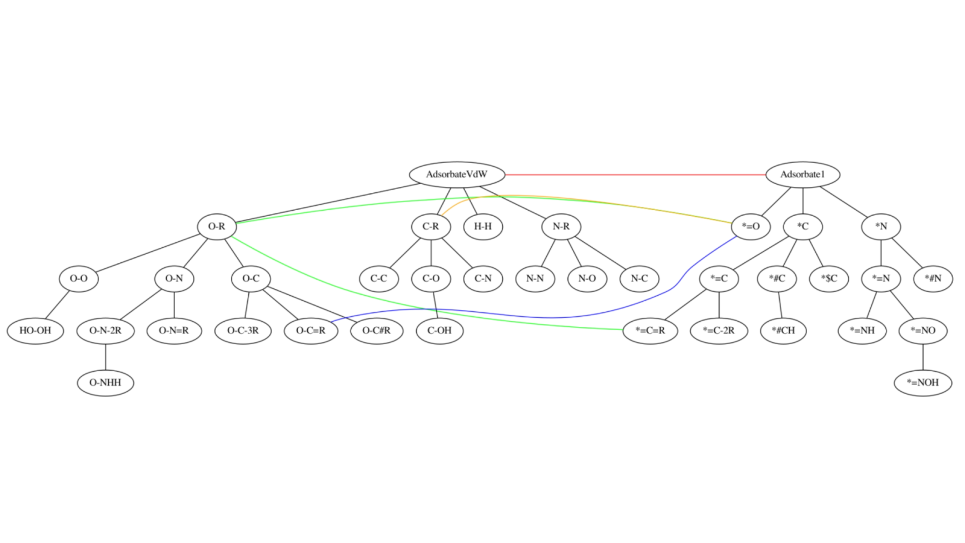
Current decision tree for the ”Surface_Abstraction_vdW” reaction family, with existing rate rules shown in color.
This work will facilitate and significantly speed up the quantitative description of crucial gas- phase and coupled heterogeneous catalyst/gas-phase chemical systems. Such tools promise to enable revolutionary advances in predictive catalysis, crucial to addressing DOE grand challenges, including both energy storage and chemical transformations.
The primary goal of this INCITE project is to enable routine construction of predictive microkinetic models for heterogenous catalysis systems by developing an open access database using tools developed within the ECC project.
This work will facilitate and significantly speed up the quantitative description of crucial gas- phase and coupled heterogeneous catalyst/gas-phase chemical systems. Such tools promise to enable revolutionary advances in predictive catalysis, crucial to addressing DOE grand challenges including both energy storage and chemical transformations. The researchers will construct a consistent database of values that enable reaction network tools to construct predictive values for heterogenous catalysis through interrelated thrusts of reaction network generation and analysis, potential energy surface exploration, advanced thermochemical properties, and beyond density functional theory (DFT) methods.
The team has three primary scientific objectives that will enable the construction of the underlying database that outside researchers can then use to generate predictive microkinetic models: (1) to calculate a large ensemble of reactions at a baseline density functional theory level of accuracy that is sufficiently detailed to enable the team’s reaction network tools to make predictions, (2) to vastly reduce the uncertainty in temperature dependence of entropic considerations of adsorbate thermochemistry in this database by calculating a comprehensive consistent set of species with fully anharmonic partition functions, and (3) to investigate and reduce the uncertainty from DFT simulations by employing beyond DFT methods and validating the subsequent improvement in microkinetic modeling against experiment.